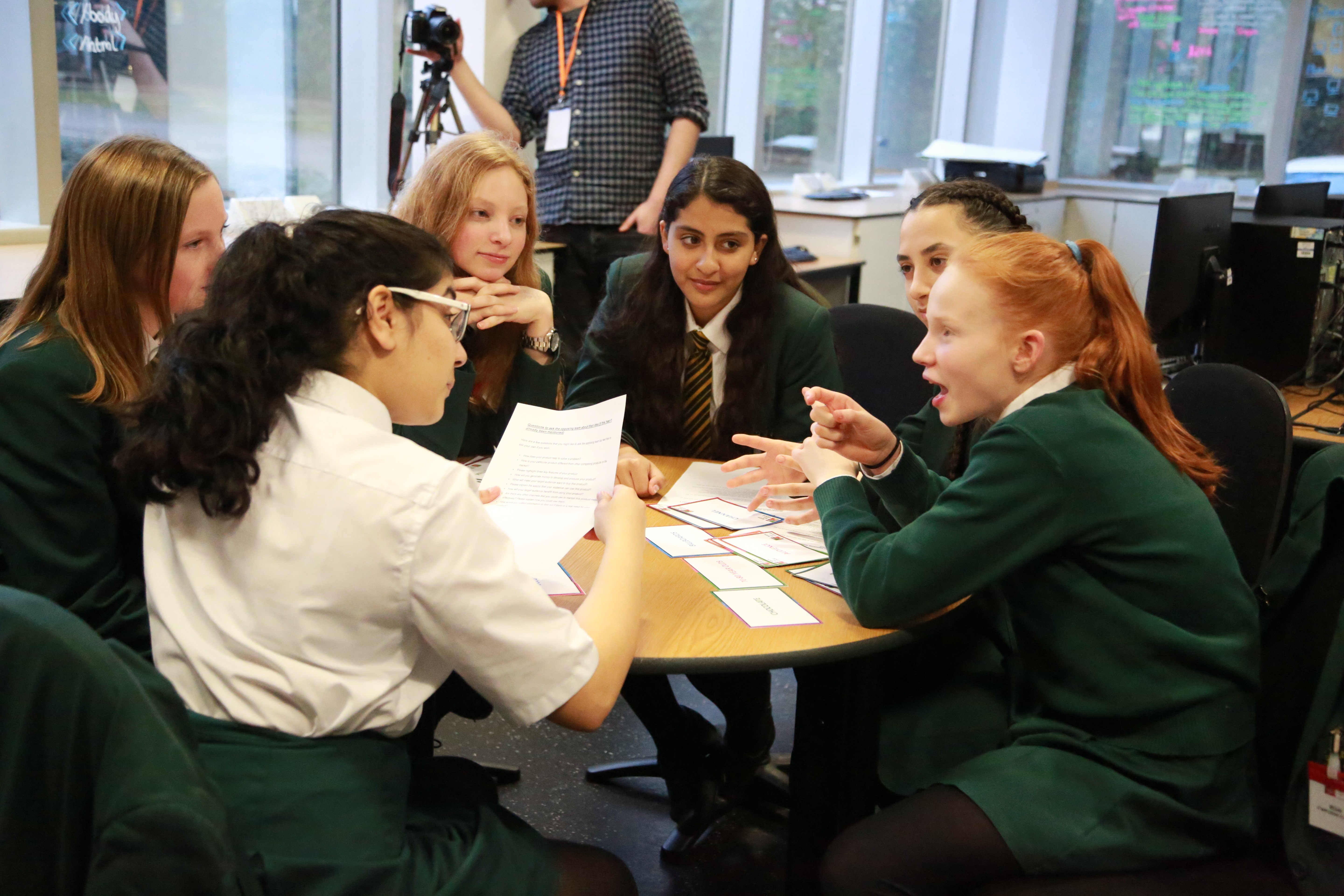I am excited to reveal that a consortium of partners has been awarded £2.4 million for a new research project to investigate how to engage more girls in computing, as part of our work with the National Centre for Computing Education. The award comes at a crucial time in computing education, after research by the University of Roehampton and the Royal Society recently found that only 20% of computing candidates for GCSE and 10% for A level Computer Science were girls.

The project will investigate ways to make computing more inclusive.
The project
‘Gender Balance in Computing’ is a collaboration between the consortium of the Raspberry Pi Foundation, STEM Learning, BCS, The Chartered Institute for IT, and the Behavioural Insights Team. Our partners, Apps for Good and WISE, will also be working on the project. Trials will run from 2019–2022 in Key Stages 1–4, and more than 15,000 students and 550 schools will be involved. It will be the largest national research effort to tackle this issue to date!
Our research around gender balance has many synergies with the work of the wider National Centre for Computing Education (NCCE) programme, which also focuses on pedagogy and widening participation. We will also be working with NCCE Computing Hubs when planning and implementing the trials.
How it will work
‘Gender Balance in Computing’ will develop and roll out several projects that aim to increase the number of girls choosing to study a computing subject at GCSE and A level. The consortium has already identified some of the possible reasons why a large percentage of girls don’t consider computing as the right choice for further study and potential careers. These include: feeling that they don’t belong in the subject; not being sufficiently encouraged; and feeling that computing is not relevant to them. We will go on to research and pilot a series of new interventions, with each focusing on addressing a different barrier to girls’ participation.
We will also trial initiatives such as more inclusive pedagogical approaches to teaching computing to facilitate self-efficacy, and relating informal learning opportunities, which are often popular with girls, to computing as an academic subject or career choice.

Signposting the links between informal and formal learning is one of the interventions that will be trialled.
Introducing our partners
WISE works to increase the participation, contribution, and success of women in the UK’s scientific, technology, and engineering (STEM) workforce. Since 1984, they have supported young women into careers in STEM, and are committed to raising aspirations and awareness for girls in school to help them achieve their full potential. In the past three years, their programmes have inspired more than 13,500 girls.
The Behavioural Insights Team have worked with governments, local authorities, businesses and charities to tackle major policy problems. They generate and apply behavioural insights to inform policy and improve public services.
Apps for Good has impacted more than 130,000 young people in 1500 schools and colleges across the UK since their foundation in 2010. They are committed to improving diversity within the tech sector, engaging schools within deprived and challenging contexts, and enthusing girls to pursue a pathway in computing; in 2018, 56% of students participating in an Apps for Good programme were female.
“A young person’s location, background, or gender should never be a barrier to their future success. Apps for Good empowers young people to change their world through technology, and we have a strong track record of engaging girls in computing. We are excited to be a part of this important work to create, test, and scale solutions to inspire more girls to pursue technology in education. We look forward to helping to build a more diverse talent pool of future tech creators.” — Sophie Ball & Natalie Moore, Co-Managing Directors, Apps for Good
The Raspberry Pi Foundation has a strong track record for inclusion through our informal learning programmes: out of the 375,000 children who attended a Code Club or a CoderDojo in 2018, 140,000 (37%) were girls. This disparity between the gender balance in informal learning and the imbalance in formal learning is one of the things our new research project will be investigating.
The challenge of encouraging more girls to take up computing has long been a concern, and overcoming it will be critical to ensuring that the nation’s workforce is suitably skilled to work in an increasingly digital world. I’m therefore very proud to be working with this group of excellent organisations on this important research project (and on such a scale!). Together, we have the opportunity to rigorously trial a range of evidence-informed initiatives to improve the gender balance in computing in primary and secondary schools.
Website: LINK
Schreibe einen Kommentar
Du musst angemeldet sein, um einen Kommentar abzugeben.